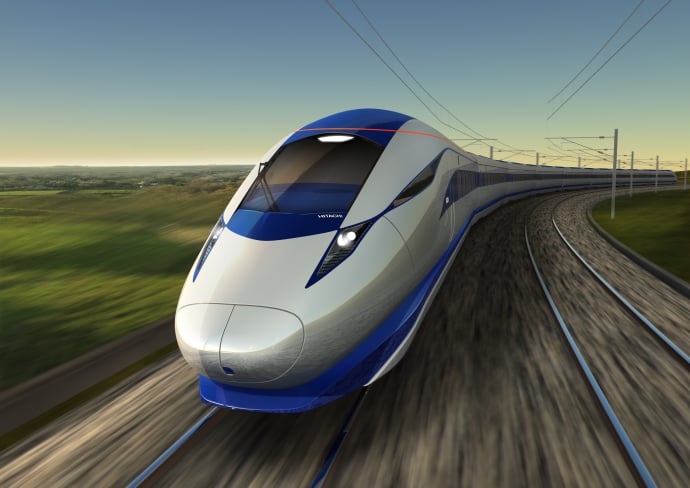British Prime Minister Boris Johnson has announced that he has given the go-ahead for the construction of the country’s biggest infrastructure project – HS2 high-speed railway that envisages linking London, Birmingham, Manchester and Leeds in a “Y”-shaped network with new 360 km/h tracks.
The controversial HS2 project has faced opposition from several quarters including from within the ranks of Johnson’s own Conservative party.
The approval given to HS2 is seen as part of the government’s effort to stimulate growth beyond the southeast of England. The decision is seen as an acknowledgement of the support that Johnson led conservative party received in rust-belt areas of the middle and north of England helping him win a comfortable 80-seat majority.
Speaking after a cabinet meeting on Tuesday (Feb 11), Johnson said that his government had the “guts to take the decision” to deliver prosperity across the country.
In a bid to expedite the project, Johnson also said that he would be appointing a full-time government minister to take charge of HS2, instil discipline in the project timetable and look for possible cost-saving opportunities.
Johnson also criticised HS2 Ltd, the taxpayer-funded company charged with delivering the project, especially for their inability to assuage the sentiments of the communities affected by the project.
“I cannot say that HS2 limited has distinguished itself in the handling of local communities. The cost forecasts have exploded, but poor management to date has not detracted from the fundamental value of the project.” Johnson said
Johnson also provided an expansive vision for an integrated transport vision for the country “where high-speed trains glide between our great cities, where electric buses convey us cleanly around our towns, where self-driving cars roam along roads that are free of the congestion that causes so much pollution, and where a new generations of cyclists pedal safely and happily to school and work in tree-dappled sunlight on their own network of fully segregated cycle paths.”
HS2 proposal has come under heavy criticism for its environmental impact and exorbitant costs. The 2015 budget put the cost estimate of the project at just under $72.4 billion but another recent report in January this year suggested that costs had almost doubled to £106 billion.
Critics have also warned that HS2 will not only reinforce London’s economic dominance but fail to benefit other regions of Britain. Environmental groups have also raised fears that the high-speed train will cause large scale destruction to the natural environment as the proposed line will traverse ancient woodlands, nature reserves and almost 700 classified wildlife sites.
HS2 project is envisioned to be executed in two phases – phase 1 that would link London with Birmingham and scheduled to be completed sometime around 2030 and a phase 2 from the West Midlands to Leeds and Manchester, scheduled for full completion between 2035 and 2040.
According to the Department for Transport, the project upon completion will cut Birmingham to London journey times from one hour 21 minutes to 52 minutes.
Once the second phase is complete, Manchester to London journeys would take one hour seven minutes (down from two hours seven minutes), and Birmingham to Leeds 49 minutes (down from two hours).
The government hopes it will also free up capacity on overcrowded commuter routes.
Over 10,000 people employed are currently employed HS2 project including 2,250 permanent staff and 7,750 consultants and contractors. An estimated $10.42 bn has been spent even though construction has not started. including the cost of acquiring 900 homes, farms and properties at a cost of £3bn.
Britan has one high-speed rail network currently operational. Called the HS1, it links London to the Channel Tunnel, which connects the country to France. It was commissioned in 2003.


